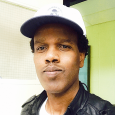Sign in to follow this
Followers
0

How is the International press reporting Yusuf's win
By
Libaax-Sankataabte, in
Politics

By
Libaax-Sankataabte, in
Politics